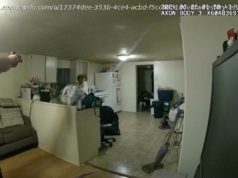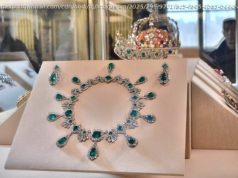Days after ceasing their legal battle, Gard’s parents announce their son’s death.
The terminally ill infant at the center of a UK medical ethics controversy that expanded to include Pope Francis and Donald Trump has died, his parents say.
For months, the legal battle between the parents of Charlie Gard and London’s Great Ormond Street Hospital was the subject of media attention — and controversy. Gard’s case has prompted wider questions on both sides of the Atlantic about end-of-life care, state-funded health care, and whether parents or medical professionals have the right to make medical decisions about a child who cannot advocate for himself.
But Gard’s fight came to an end earlier, according to his parents, who announced that he died in a hospice.
Gard’s death follows an eventful week in his case: as his parents and doctors found themselves, for the first time since the legal proceedings began, on the same side. Following the results of testing by Dr. Michio Hirano of Columbia University, an American doctor whose nucleoside therapy was seen by Gard’s parents as his last hope for survival — and by opponents as an unnecessary procedure that would produce no measurable results — Gard’s parents have withdrawn their appeal, agreeing that transporting him to the US for treatment would be fruitless.
“It’s too late for Charlie, ” Grant Armstrong, the couple’s attorney, said Monday according to the Associated Press . “The damage has been done.”
Charlie Gard’s case has been at the center of international controversy for months
Eleven-month-old Gard suffered from a hereditary, terminal disease called infantile onset encephalomyopathic mitochondrial DNA depletion syndrome (MDDS) . He has been suffering degenerative brain damage since birth and cannot breathe without a ventilator or move without assistance. The condition is exceptionally rare; it’s believed to affect a few dozen children at most.
Specialists at Great Ormond Street Hospital in London, where Gard was being treated, came to the conclusion that it would be in his best interest for them to remove the ventilator and begin to focus instead on palliative care for the boy’s final days. A team of specialists in Barcelona, providing a second opinion, came to the same conclusion.
But Gard’s parents, Chris Gard and Constance Yates, disagreed. They wanted to bring Charlie to America to undergo experimental treatment, called nucleoside bypass therapy, which they believed could slow the progression of the disease. They raised funds through GoFundMe — a staggering 1.3 million pounds — for the treatment, which, unlike the medical care in the UK, would not be covered by the UK’s National Health Service.
In April, the UK High Court ruled that it was in Charlie’s best interest to remain at Great Ormond Street and to go off life support in order to undergo palliative care, rather than — in the court’s view — needlessly suffer through further treatments. Justice Nicholas Francis wrote in his decision that ultimately, there was no hope of Gard’s recovery or even improvement. Even Hirano, the doctor behind the experimental treatment in the US, agreed upon seeing additional documentation, that it was „unlikely that he will improve with that [experimental] therapy.”
Even if the treatment could slow further progression of the disease (something that, itself, would be unlikely) , it could not have reversed extant damage. The remainder of Gard’s life would have been painful (according to Francis’s report, Ormond Street specialists believed he was capable of experiencing pain, though not expressing it, a factor in the court’s final decision) .
Gard’s parents pushed back against the court’s ruling, taking their case to the Court of Appeals, which ruled against the parents in late May, and to the UK Supreme Court, which ruled similarly in June.
But after a public media outcry that included both Pope Francis and Donald Trump, a final decision on Gard’s case was furthered postponed. Then earlier this month, Gard’s parents and the hospital went back to court over claims that his parents had new medical evidence that would support putting the child into treatment. After Dr. Hirano, who examined Gard last week, found that it was too late to reverse extant damage, Gard’s parents withdrew their appeal.
Gard’s final days were also marked by controversy. His parents requested that he be allowed to die at home with approximately a week of life support treatment: something that a court order, drawn up Thursday, prevented, on the grounds that a lack of a proper medical supervisory team in place there would prolong Gard’s suffering. The couple later agreed to hospice treatment, but requested a similar period of time on life support there: which was likewise denied.
A spokeswoman for GOSH said: “The risk of an unplanned and chaotic end to Charlie’s life is an unthinkable outcome for all concerned and would rob his parents of precious last moments with him.”
In a statement Friday evening, Yates said: „Our beautiful little boy has gone, we are so proud of you Charlie.“






